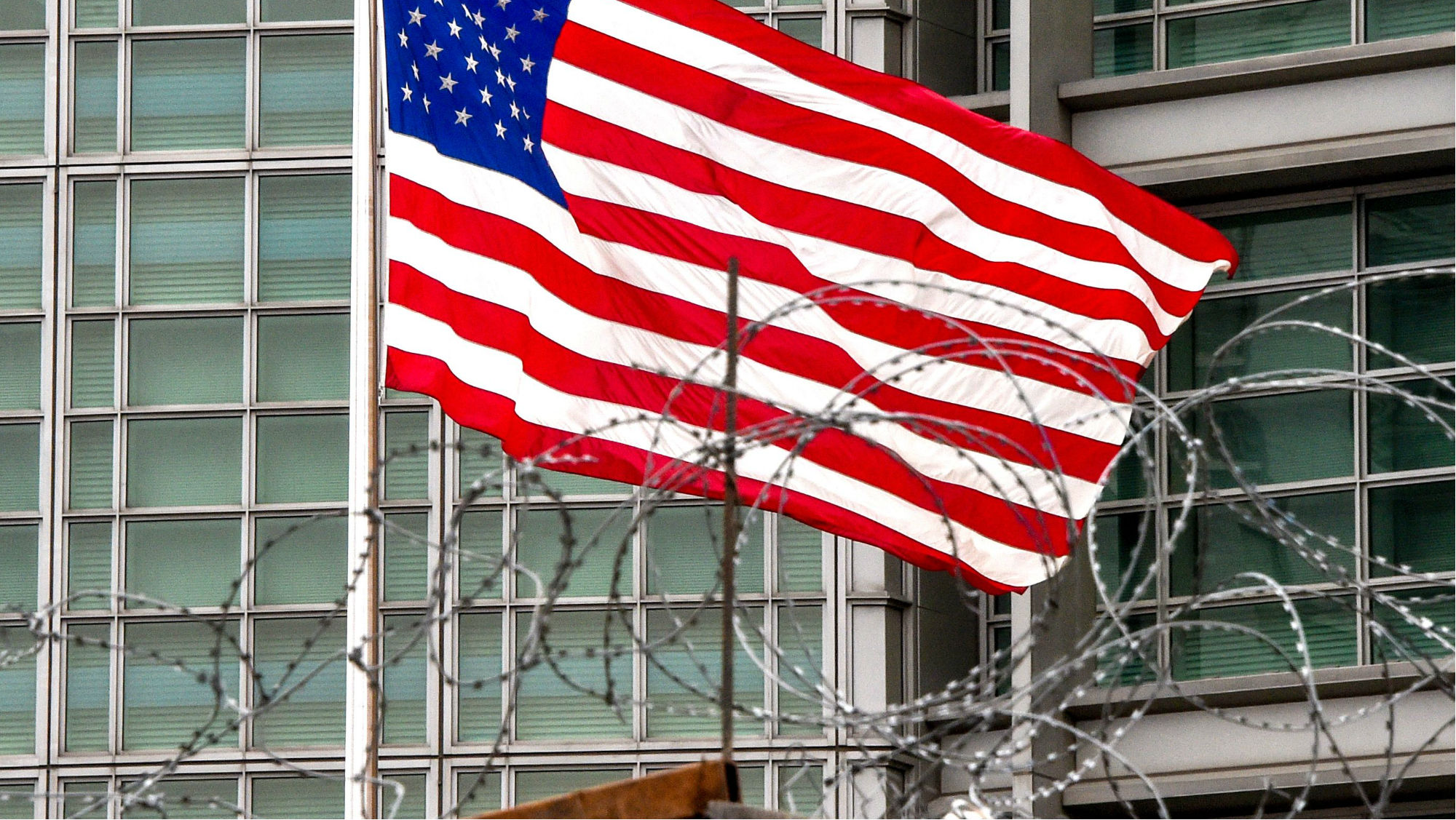By Jacob L. Shapiro
Led by the United Kingdom and the United States, more than 20 countries expelled Russian diplomats last week. Moscow promised to respond in kind and has already shown 60 foreign diplomats the door. Commentators in the Western media and the Russian press are breathlessly bandying about the same question: Is the world on the edge of a second Cold War? It is an absurd question for a number of reasons, but I will content myself here to explain just one of them. The Cold War was as much a geopolitical conflict as it was an ideological one. The Soviet Union viewed itself as the vanguard of a global revolution – this was the end that justified the means. The U.S. similarly believed it was unique, a liberal light unto the nations sworn to defend the freedom of every individual.
The same cannot be said today for either. Indeed, it cannot be said that any of the world’s major countries possesses an ideology that animates or justifies its actions. Russia and China no longer pursue global revolution: Russia pursues its national interests in its buffer zones, and China pursues its national interests in its littoral waters. Kim Il Sung’s “juche” in North Korea has become little more than a nuclear weapons program. In Europe, even the most fervent of Europhiles thinks that at a certain point Brussels should mind its own business. As for the U.S., apart from a brief neoconservative soiree in the early 2000s, Washington has been more confused than anything else since 1991. A year and a half of “Make America Great Again” has meant little more than “Make America More Powerful.”
The Age of Ideology
Ideology had a good run – it ruled for about 52 years, from 1939, the year World War II began. The memory of that war continues to haunt the world. Like the Cold War, World War II was a war of ideology – of liberal democracy, communism, fascism and national liberation (in various combinations depending on the year). In fact, the trope of World War II is still omnipresent today, whether in the “reductio ad Hitlerum” used in any conversation in which someone expresses a sentiment clearly beyond the pale, to the fight over the historical memory of World War II that rages on a seemingly daily basis in headlines. This fight over historical memory continues in Poland over who should be assigned blame for certain war crimes, in South Korea over how to admonish Japan for its wartime atrocities, and in the Middle East, where the one thing Turkey and Iran have in common is that both, at various times, have been compared to Nazi Germany by outsiders.
But the world today does not resemble the ideologically charged world of 1939-91, in part because of how terrified the world is of returning to such times. Indeed, the world today looks a lot more like the world during the decades that preceded a different global conflict – World War I. It was not an ideological war; it was a war for national strength without pretense in a time of rising and falling great powers. Germany no longer wished to chomp at the bit of the British Empire. The U.S. wanted more than anything to be left alone. The Ottomans, the Austro-Hungarians and the Russians were slowly deteriorating and searching for a way to inject vitality into their failing political regimes. Meanwhile, the French were inventing triple cream brie and trying to forget the revolutions and Napoleon. When Archduke Franz Ferdinand was assassinated, the European alliance system was structured in such a way that war was inevitable.
It is possible to trace the outline of a similar power structure in the current world order. A dominant, imperial power – the U.S. – is engaged in a constant game of whack-a-mole to maintain the status quo. Strengthening powers such as China and Turkey chafe at America’s disproportionate share of power and wealth. Multiethnic entities like the Russian Federation and the European Union seem well past their prime, leading to respectively aggressive and ineffective remedies to staunch the bleeding. The issues dominating the headlines are not ideological, but bureaucratic: U.S. tariffs on Chinese dumping of aluminum and steel, renegotiation of free trade agreements (including NAFTA and Brexit), monetary compensation for housing Muslim refugees (such as the EU-Turkey deal), and the Iran nuclear deal. This is not necessarily a good omen. A lack of ideology didn’t stop 20 million people from dying during World War I – and the ideologies that so ruinously dominated the world in the second half of the 20th century were born of that first epic global struggle. But World War I happened long enough ago that its lessons have mostly been forgotten.
Ideology vs. Competition
Ideology is the terror that keeps liberals and conservatives, authoritarians and democrats awake at night. The West fears a return of the Soviet Union; Russia fears Western-backed regime change; everyone fears radical Islam, which ironically is currently the world’s clearest political ideology even if it is also the most brutal. It is important to understand this global reticence toward ideology, because what nations fear is the most powerful predictor of what they will do. But it is equally important to understand that these ideological forces exacerbated 20th century conflicts, they did not cause them. The root of these conflicts was competition between great powers, and the world is inching toward a new competition.
There is perhaps no better example for the tone-deafness surrounding ideology than American political discourse. During his time in office, former President Barack Obama was often called a socialist – by his enemies, who used it is as derogatory term, and by his supporters, who thought he would make America Sweden. President Donald Trump is routinely called a populist – by his enemies, who hate his demagoguery, and by his supporters, who appreciate his tough stance on immigration. None of the popular views of either of these men comports with reality. Obama was not a socialist – what leftist paragon would ever consent to bailing out multinational finance and insurance giant AIG? And Trump is no populist – what populist would claim that irrational highs in the stock market are good for low- and middle-income workers? In the U.S., political labels have become little more than vacuous ravings, to the extent that it is hard to know who stands for what anymore.
Tellingly, this is not just an American phenomenon. It is happening across the world, and in countries whose internal divisions could truly be regime threatening. China, Russia and Turkey are a few examples. It has meant tamping down public debate for fear of what that debate might unleash and installing conservative authoritarian personalities for fear of the alternative. All of this irrationality is just the manifestation of a deepening level of popular discomfort – a discomfort that reflects the diverging interests of the world’s nations. In a world where the future feels increasingly uncertain and where economic prospects for future generations are gloomy, frustration can easily be directed at the global superpower. This superpower is seen as possessing an unfair share of money and power, which should be more equitably distributed. The global superpower itself simultaneously wants to be left alone and to maintain its position, which leads to erratic behavior, and the cycle spins on and on.
A great ideological struggle is not imminent; a new Iron Curtain is not about to descend on any of the world’s continents. There is a dominant world power and a second tier of both rising and falling powers that want the dominance of the U.S. curtailed and yet are not strong enough to realize that goal. This is creating disagreements, and there is a tendency to fall back on Cold War nostalgia to make sense of them. That is the wrong analogue. A more accurate analogue would be the latter half of the 19th century. It was a time of emerging great power competition, a time when relations between states were about national interests, not ideological righteousness. And yet even as national powers remade the world, human beings longed for ideology (or religion or science or any other worldview). They longed for ideology because it promised to make sense of the irrational and to give meaning to the mundane. And when war exploded, there was no shortage of ideologies available to the masses to make sense of the carnage.
In the current global structure, there is a dominant power, but it is increasingly challenged by other powers seeking to defend or achieve their national interests. As the world becomes more competitive and as it becomes more difficult for the average person to imagine that the present course will lead to a better tomorrow, the desire for ideology will rise. Ideology is not shaping bilateral relations because an ideology hasn’t emerged yet that has captured the spirit of the times. The world is still cycling through the old ones, attempting to understand the 21st century through the lens of the 20th century. That means we aren’t on the verge of the Second Cold War. Ideology is dead. Even so, we can already see the shape of new gods being created.








